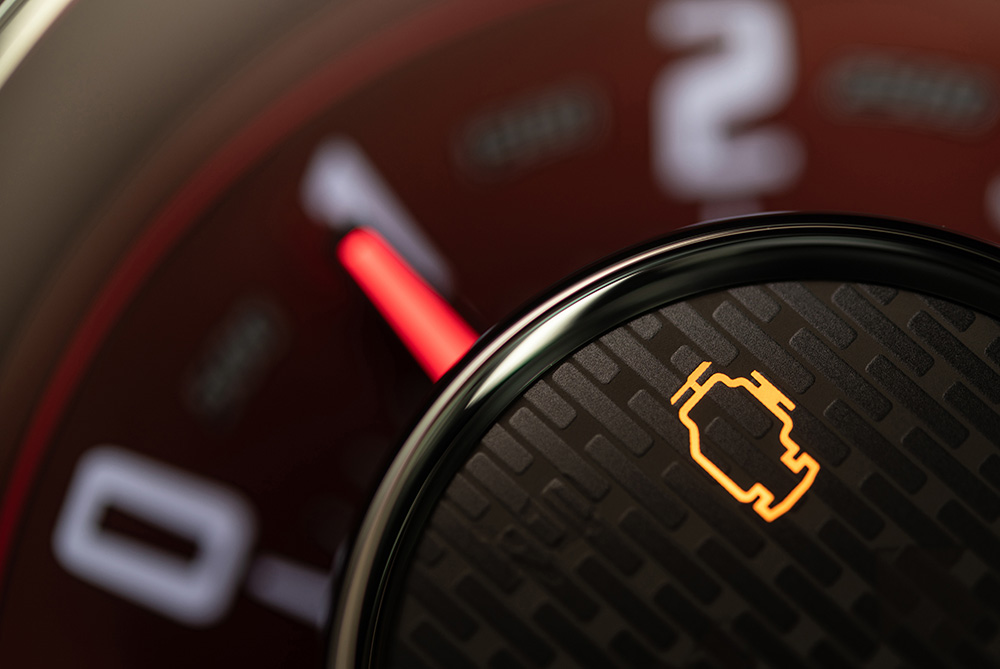
Behind the wheel, we are all heading somewhere. Ideally, we can get to our destination without interruption, but if your check engine light is “on” you will want to investigate. When the check engine light illuminates, it’s indicating that there is a potential problem. Driving with the check engine light on can potentially have various risks and consequences. While the check engine light itself is not an indication of a specific problem, it serves as a warning that there is an issue within your vehicle’s engine or emissions system that needs attention. Here are some potential harms associated with driving with the check engine light on:
Increased Potential for Further Damage
Ignoring the check engine light could lead to more severe problems within your vehicle. The light could be signaling an issue with critical components such as the engine, transmission, or emissions system. Continuing to drive without addressing the underlying problem may exacerbate the issue, leading to expensive repairs or even engine failure.
Reduced Fuel Efficiency
The check engine light can also indicate problems that may negatively impact your vehicle’s fuel efficiency. Such issues can lead to decreased gas mileage and increased fuel costs. Isolating the problem is a task best done by a qualified technician, but possible culprits include:
- Oxygen sensor malfunction: The oxygen (O2) sensor measures the amount of oxygen in the exhaust gases, helping the engine’s control system adjust the air-fuel mixture for optimal combustion. A faulty oxygen sensor can provide incorrect readings, causing the engine to run rich (too much fuel) or lean (too little fuel). This imbalance can lead to decreased fuel efficiency.
- Malfunctioning spark plugs: Spark plugs ignite the air-fuel mixture in the engine’s cylinders. If the spark plugs are worn out or not functioning correctly, they may not ignite the mixture properly, resulting in incomplete combustion. This can lead to reduced power and lower fuel efficiency.
- Clogged or malfunctioning catalytic converter: The catalytic converter is responsible for reducing harmful emissions by converting toxic gases into less harmful substances. If it becomes clogged or fails to function correctly, it can restrict the exhaust flow and negatively impact engine performance and fuel efficiency.
- Air intake or fuel delivery issues: Problems with the air intake system, such as a clogged air filter or a malfunctioning mass airflow sensor, can disrupt the proper air-fuel mixture, leading to reduced fuel efficiency. Similarly, issues with the fuel system, such as a malfunctioning fuel injector or a fuel pressure problem, can affect fuel delivery and result in poor mileage.
Emissions Non-compliance
In many areas, vehicles are subject to emissions regulations. If the check engine light is on due to a malfunction in the emissions control system, driving with the light on could result in your vehicle failing an emissions test or being non-compliant with local regulations. This could lead to fines, penalties, or the inability to renew your vehicle’s registration. Learn more about emissions testing in the St. Louis Metro Area.
Safety Risks
Some underlying problems that trigger the check engine light could also compromise the safety of your vehicle. For example, issues with the braking system, engine misfires or problems with the electronic stability control can impact your ability to control the vehicle properly, increasing the risk of accidents or other hazardous situations.
Lack of Warning for Additional Problems
The check engine light is part of the onboard diagnostic (OBD) system, which is designed to detect a wide range of potential issues in your vehicle. By ignoring the light, you’re effectively disabling a crucial warning system that could detect other problems that may arise while driving. These issues might not be immediately apparent, but they could have serious consequences if left unaddressed.
It’s important to note that the check engine light can be triggered by minor issues as well, such as a loose gas cap or a temporary glitch in the system. However, if the check engine light appears it’s generally recommended to have the issue diagnosed and addressed by a qualified mechanic or technician as soon as possible to prevent potential harm to your vehicle and ensure its continued safe operation.

